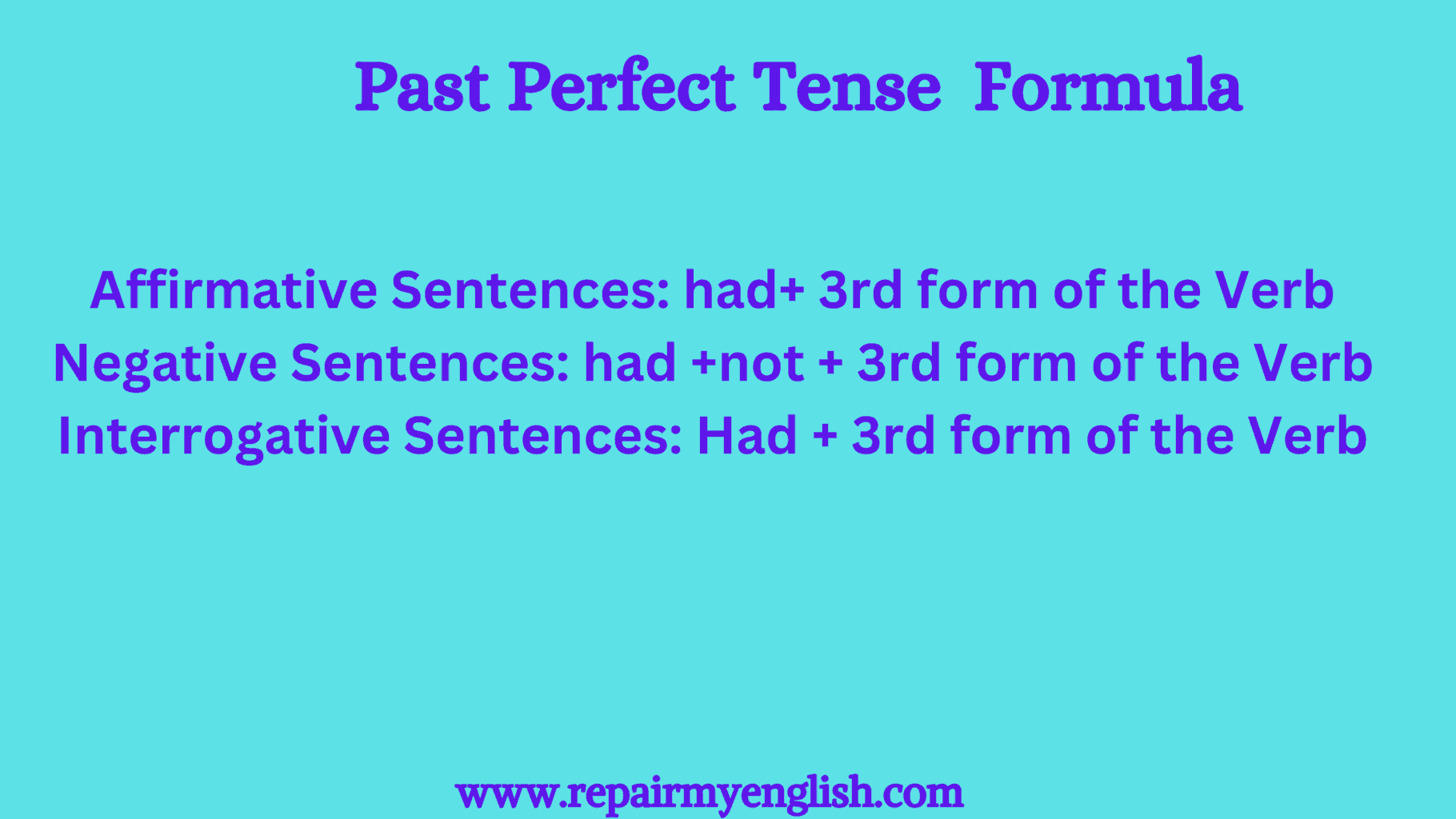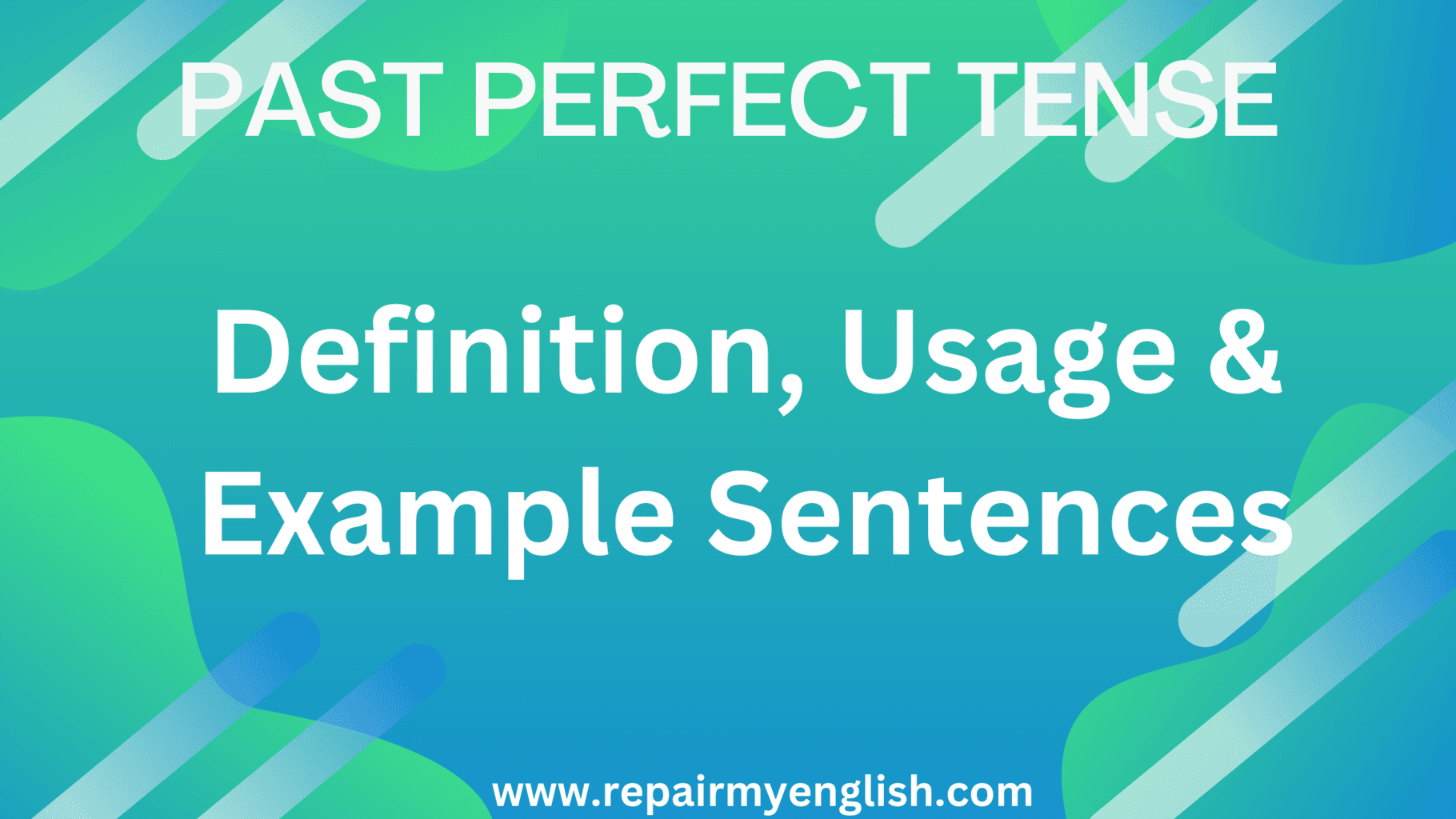Past Perfect Tense Rule: Subject + had + V3 + Object
Introduction:
The Past Perfect tense is a grammatical structure that describes an action completed before another action or point in the past. This Tense is important for indicating the sequence of events in the past and is often used in conjunction with the Simple Past Tense.
Past Perfect Tense Formula:

First-person singular | I + had |
I + had + 3rd form of the verb | I had worked |
Second-person singular | You + had |
You + had + 3rd form of the verb | You + had + worked |
Third-person singular | He / She / It + had |
He + had + 3rd form of the verb | He + had + worked |
She + had + 3rd form of the verb | She + had + worked |
It + had + 3rd form of the verb | It + had + worked |
First-person plural | We + had |
We + had + 3rd form of the verb | We + had + worked |
Second-person plural | You + had |
You + had + 3rd form of the verb | You + had + worked |
Third-person plural | They + had |
They + had + 3rd form of the verb | They + had + worked |
Past Perfect Tense Usage:
The Past Perfect tense is primarily used to show that one action happened before another action or point in the past. It’s used to express a sense of completion or to establish a clear chronological order of events. The words “before,” “after,” “already,” and “by the time” are often used with this Tense.
This Tense is also employed to convey an unfulfilled desire:
Past Perfect Tense Example Sentences:
- When the police arrived, the thief had escaped.
- The thief had escaped when the police arrived.
- He realized he had left his phone at home when he reached the office.
- They had never seen such a beautiful sunset before that day.
Past Perfect Tense Affirmative Example Sentences:
- Suman had completed the model before she went to school.
- I had planned my journey before I started it.
- We had practiced the dance before the function began.
- I wish my father had been here with me.
- I wish I had worked harder.
Past Perfect Tense Negative Example Sentences:
Rule: Subject + had + V3 + Object
Affirmative: Suman had completed the model before she went to school.
Negative: Suman had not completed the model before she went to school.
Affirmative: I had planned my journey before I started it.
Negative: I had not planned my journey before I started it.
Affirmative: We had practiced the dance before the function started.
Negative: We had not practiced the dance before the function started.
Past Perfect Tense Interrogative Example Sentences:
Rule: Had + subject + V3 + object
- Affirmative: Suman had completed the model before she went to school.
- Negative: Suman had not completed the model before she went to school.
- Interrogative: Had Suman completed the model before she went to school?
- Affirmative: I had planned my journey before I started it.
- Negative: I had not planned my journey before I started it.
- Interrogative: Had I planned my journey before I started it?
- Affirmative: We had practiced the dance before the function started.
- Negative: We had not practiced the dance before the function started.
- Interrogative: Had we practiced the dance before the function started?
Conclusion:The Past Perfect tense is important in English grammar for expressing the sequence of events in the past and emphasizing the completion of one action before another. It allows for clear and precise storytelling by establishing a chronological order of past actions.
For related topics visit our Grammar Page.
Learn More:

